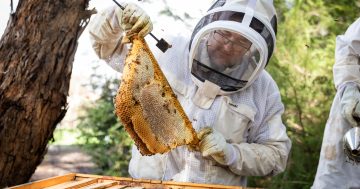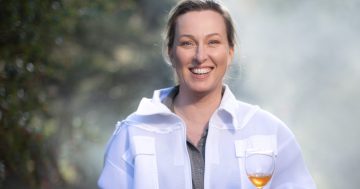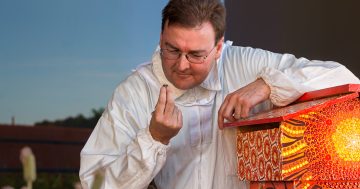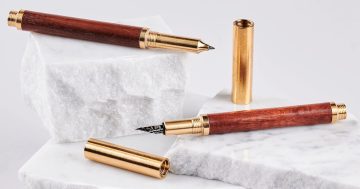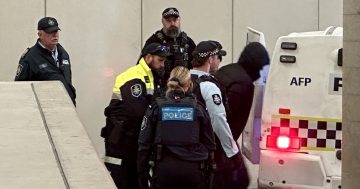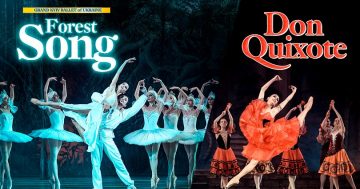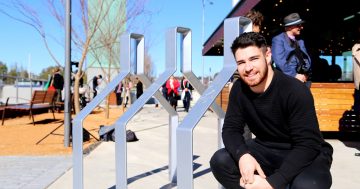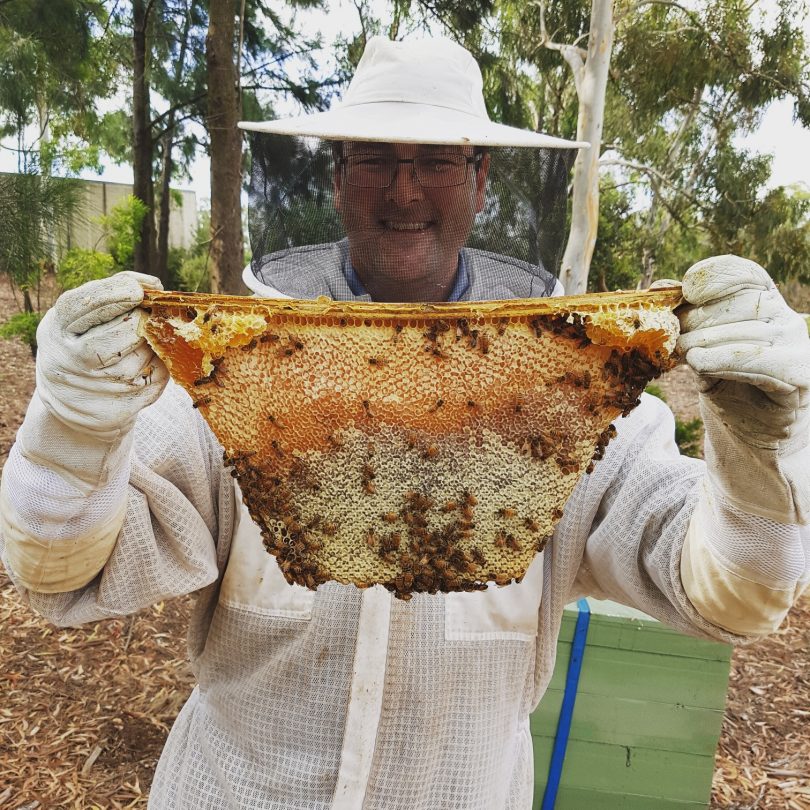
Parliament House beekeeper Cormac Farrell with the bees and their golden nectar that is producing a range of products, including a honey vodka. Photos: Supplied.
There’s a hive of activity in Parliament House, and this time, it’s not all coming from politicians.
The buzz is from a batch of honey vodka, infused with honey from the beehives at Parliament House.
The five beehives produce a range of products, mostly gifted to foreign leaders and dignitaries. The honey vodka is just one of those products, but it carries the intrinsic flavours from bees that forage in the gardens of Parliament House.
Chief beekeeper Cormac Farrell told Region Media that the bees produce a honey that is intimately connected to the surrounding landscape.
“There’s a huge variety of native and exotic plants grown throughout the parliament grounds, so the flavour, texture and colour of the honey will change, depending on what’s in flower and what’s producing the most nectar.
“It’s one of the reasons bees are such an important bioindicator of the overall health of the ecosystem they live in. Some of it is good for making things like honey vodka and some of it is better to put on your toast,” Cormac said.
A unique aspect of the Parliament House bees is that there are two species of bee, the common European honeybee and a native stingless bee, making the Australian Parliament the only one that keeps more than one type of bee. There are about 20,000 species of bee in the world.
The bees are also in good hands. Cormac is an environmental scientist and forest protection specialist working for Umwelt. He had also been keeping beehives on the rooftop of his employer’s building. They had to relocate and the beehives couldn’t be taken, so Parliament came to the rescue, as they were interested in bees as a sustainability initiative.
The Parliament House beehives are now in their third year and Cormac says there is a range of products, including a honey mead, a form of alcoholic drink invented by the Vikings. Gift jars of honey are also reserved for foreign dignitaries.
Occasionally, a surplus is sold through the Parliament House gift shop but tends to sell very quickly because of the uniqueness of the honey. Even more unique is the small amount of honey produced by the native stingless bees.
Cormac says he works with the Parliament House landscaping team who help ensure the bees are healthy and have no disease issues. The team uses an integrated pest management system that almost eliminates the need for pesticides.
“They breed predators, or what I like to call mini monsters, and they release them into the garden to control the pests naturally. This means the bees are foraging in an almost chemical-free environment.
“It would be great if everyone did that and it’s a lesson for councils and local governments everywhere,” says Cormac.

Cormac Farrell with the Parliamentary Service team, including head gardener Paul Janssens and his landscape services team and Luke Hickey from the Parliamentary Experience branch.
“The product we produce basically comes straight out of the hives and is poured into the jar. It’s an amazing flavour and people really are surprised at the intensity and complexity of the flavour.”
Parliament House chefs also get a sampler from the first batch each spring where the honey is showcased in official dinners in various glazes and sauces.
Turning the liquid gold is Tasmanian distiller William McHenry, who owns and operates McHenry Distillery, a 100-acre property at Port Arthur, on the southernmost tip of Tasmania. The property has its own naturally-fed spring and they make a number of distilled products for Parliament House.
“I happen to be both a distiller and also a beekeeper, so I was more than happy to try making a couple of different products when they told me they had some honey from the beehives at Parliament House,” William said.
“Because the flavours of honey are unique to the region where the bees have been foraging, we can get the flavour of the honey from those bees inside the vodka.”
“I used to keep a beehive near the window of my bedroom and I used to love watching the little guys working away, 24 hours a day.
“When you start working with bees, you get very comfortable with them and start to understand their moods. They’re really quite gentle and interesting animals to work with, so I would encourage more urban beekeepers, as it’s been shown that some of them are making award-winning honey.
“If you start to fall in love with bees, you might keep them and really help to look after their environment.”
The beehive initiative follows the installation of beehives at the White House in America and parliaments in Western Australia and Queensland. Beehives were also kept in the gardens of Old Parliament House in 1976, managed by the then Member for Holt, William Yates.
Parliament House Honey Vodka is available at the gift shop at Parliament House and is $70 a bottle.

Busy bees being inspected at Parliament House Gardens. Photo: David Foote.

The honey vodka, featuring honey from bees at Parliament House.
